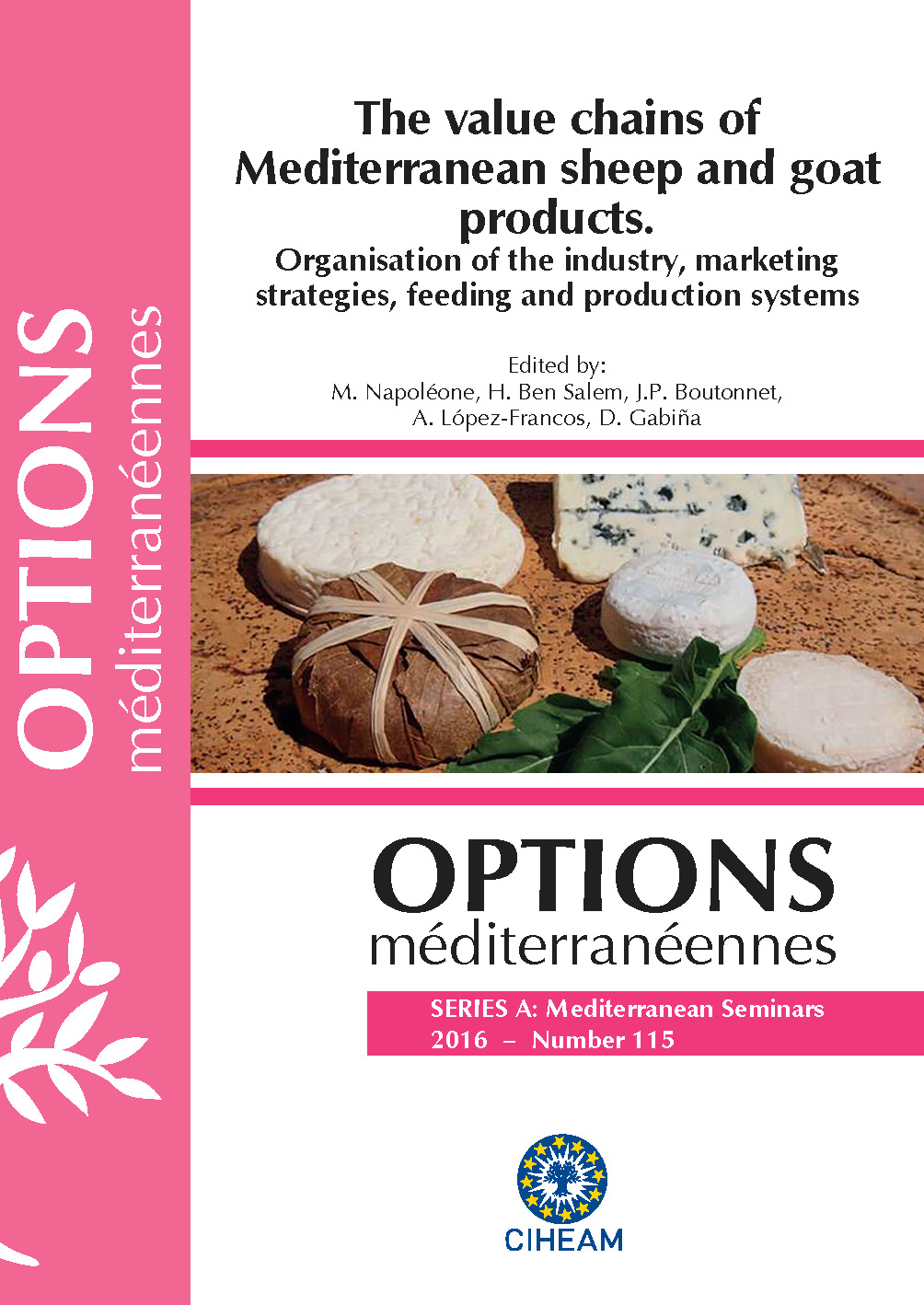| Article précédent | p. 387-391 | Article suivant |
Innovation in feeding practices to improve the sustainability of local and traditional sheep production
Small ruminants have played for centuries a key role for the livelihoods of people in the Mediterranean basin. In particular, the importance of dairy sheep systems is evident in relation to landscape configuration, diversity of products, cultural heritage, etc. However, the sustainability of many of these systems is seriously endangered nowadays. Therefore, they will have to face adaptation strategies to fit to the current social, economic and environmental conditions. In particular, feeding practices are related to many of the negative environmental impacts that livestock farming is usually blamed for: methane emissions, landscape degradation and erosion, competition with humans for edible resources, etc. Because of that, the Department of Animal Production of Neiker-Tecnalia is carrying out several research activities relative to the Latxa dairy sheep production system aiming to: (i) innovate in the grazing management practices to enhance the potential of grasslands to fix carbon and improve the fertility of soils, productivity and biodiversity (LIFE REGEN FARMING project); (ii) add value to a range of residues (becoming into co-products) coming from the agrofood industry (dry whey, cold-pressed cakes obtained by the extraction of oil from sunflower, rapeseed and olives) by including them in the ration and decrease the utilisation of soybean, cereals, etc. (LIFE SEEDCAPITAL and VALORLACT projects); and, (iii) improve the nutritive quality and healthy features of added value food products. The rationale behind these activities and some results will be presented.
Les petits ruminants ont joué pendant des siècles un rôle clé pour la subsistance des populations dans le Bassin Méditerranéen. En particulier, l’importance des systèmes des ovins laitiers est évident par rapport à la configuration du paysage, les produits, l’héritage culturel, etc. Cependant, la viabilité de beaucoup de ces systèmes est sérieusement mise en danger de nos jours. Donc, ils devront faire face aux stratégies d’adaptation pour répondre aux conditions sociales, économiques et environnementales actuelles. En particulier, les pratiques d’alimentation sont liées à de nombreux impacts négatifs sur l’environnement qui sont d’habitude blâmées à l’élevage : les émissions de méthane, la dégradation du paysage, la concurrence avec l’homme pour les ressources comestibles, etc. À cause de cela, le Département de Production Animale de Neiker-Tecnalia a mené plusieurs activités de recherche relatives au système laitière de la Latxa visant à: (i) innover dans le gestion des pâturages pour améliorer le potentiel des prairies pour fixer carbone et améliorer la fertilité, la productivité et la biodiversité (LIFE REGEN AGRICULTURE projet); (ii) ajouter de la valeur à une gamme de résidus (coproduits) provenant de l’industrie agro-alimentaire (lactosérum sec, tourteaux pressées à froid obtenus par l’extraction de l’huile de colza) en les incluant dans la ration et de diminuer l’utilisation de soja, céréales, etc. (projets LIFE : SEEDCAPITAL et VALORLACT); et (iii) améliorer la qualité nutritive et les caractéristiques saines de produits alimentaires. Le raisonnement derrière ces activités et des résultats seront présentés.
- [ Afficher ]
- [ Télécharger ]
- [ Exporter la citation ]
Vous pouvez télécharger la citation au format :
- [ Imprimer ]
-
Mots-clés
ELEVAGE, GESTION, INNOVATION, OVIN, PRODUIT LAITIERCiter cet article
Mandaluniz N., García-Rodríguez A., Arranz J., Pineda-Quiroga C., Beltrán de Heredia I., Ugarte E., Ruiz R. Innovation in feeding practices to improve the sustainability of local and traditional sheep production. In : Napoléone M. (ed.), Ben Salem H. (ed.), Boutonnet J.P. (ed.), López-Francos A. (ed.), Gabiña D. (ed.). The value chains of Mediterranean sheep and goat products. Organisation of the industry, marketing strategies, feeding and production systems. Zaragoza : CIHEAM, 2016. p. 387-391. (Options Méditerranéennes : Série A. Séminaires Méditerranéens; n. 115). Joint Seminar of the Subnetworks on Nutrition and on Production Systems of the FAO-CIHEAM Network for Research and Development in Sheep and Goats, 2015/06/16-18, Montpellier (France) . http://om.ciheam.org/om/pdf/a115/00007303.pdf



